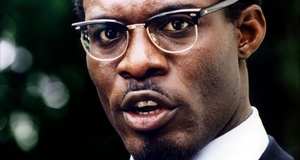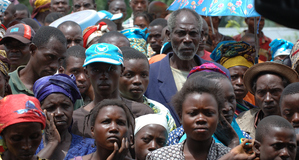Ronan Bennett's The Catastrophist: Paralleling Ireland and Congo
By
2011, Vol. 3 No. 08 | pg. 1/1
KEYWORDS:
In The Catastrophist, Ronan Bennett draws on events in Ireland to frame the political situation in the Congo and depicts political parallels between the two countries. Simultaneously he uses the reporting of these events to attack the “culture of aloofness based on middle class complacency,” as he criticises the revisionist style of historical writing which adopted a detached, non-committal approach to ‘The Troubles’ in Northern Ireland (Bennett 1994: 55). Moreover, Bennett also refers to the situation in Ireland to accentuate an overall theme of disconnection and division in the novel. There are multiple references throughout the novel to events in Ireland as Bennett draws the readers’ attention to the parallels between the two countries. At the beginning of the novel Stipe tells Gillespie that “the more demonstrators you shoot down…the more people flock to the cause.” Bennett makes a link to Ireland as Stipe compares the increase in support in the Congo to the increase in support for republicans “after your Easter Rising.” It is also possible to draw parallels with “The Troubles,” as after internment more people in Ireland were radicalised and joined the paramilitary organisations. The shootings at the beginning of the novel “offer several parallels to Bloody Sunday, as police brutality increased the number of adherents to the cause…several marchers were killed [and] stones were conveniently found in their pockets” and Bennett writes about a similar situation in the Congo, which emphasises the similarities of violent conduct and government response in the two countries (Brouillette, 265).Stipe describes Britain as a “colonial power” just like the Belgians in the Congo, as he says that “every colonial power always” claims that the situation is “complicated.” The Belgians are portrayed as a colonial power, trying to justify their involvement in the Congo, as Rodger said “I suppose the Belgians would say that the Congo was in an appalling condition…there were cannibals you know.” The statement that the “US is one of the few Western nations with no selfish, strategic or economic interests in the Congo” is almost a direct quotation from Peter Brooke, British Secretary of State, when he claimed that Britain had no “selfish, strategic or economic interests” in Ireland. Bennett employs these expressions to emphasise to the reader the comparable situations in both Ireland and the Congo. Furthermore, Bennett’s use of flashback in the narrative places the events in the Congo and Ireland side-by-side, as he often discusses the Congo and then flashes to his past in Belfast or his time with Ines in Dublin, and this physical juxtaposition further accentuates the political analogy. However, Bennett is not only drawing attention to the parallels between the Congo and Ireland, he is also attacking the revisionist writing about The Troubles, where writers, like Roy Foster, write in a “reflective, interrogative” style with a tone of irony rather than “fizzle with indignation”(Brown 2003; 3). Bennett disapproves of detached, noncommittal writing and that is clearly depicted in the novel. There are “significant parallels between Bennett’s own life and Gillespie’s” as both men write novels and newspaper articles, both were born in Northern Ireland but live in London and both started out as historians before moving on to journalism and creative writing (Brouillette, 263). These parallels serve to “lend more emphasis to Bennett’s aversion to everything Gillespie represents” as Gillespie sees his removal from Ireland as an excuse not to be personally involved and Bennett thinks that personal involvement is important (Brouillette, 264). Bennett may have created a narrator that is similar to himself (apart from their differing stance on writing), in order to encourage the reader to compare Bennett’s and Gillespie’s journalistic style, and ultimately to encourage them to disagree with the revisionist style of writing. Bennett uses the idea of neutrality, and its unfeasibility to frame the novel and draw a parallel between the situation in Ireland and the Congo. Bennett seems to use Ines as a mouthpiece for his views as she is often the character who disagrees with Gillespie and argues against his balanced, neutral writing. During an argument she screams at Gillespie “how can you be from Ireland and not pick a side” and this appears to be Bennett’s viewpoint on writing. Bennett uses repetition throughout the novel to show that Gillespie sees himself as an “interested, slightly wry observer who always stands aloof so he can make balanced judgements” (Coughlan, 373). However, Bennett emphasises that Gillespie is part of the Congo’s “maelstrom of competing factions and interests” whether he likes it or not, and this is clear to the reader particularly in the torture scene (Coughlan, 374). In the torture scene, Gillespie continually tries to maintain his neutrality “I am not for. I am for nothing… je suis home-plume” but Bennett juxtaposes this statement with the reality of Gillespie getting kicked in the head by the captain, showing that no matter how much Gillespie denies it, he cannot escape being involved. In all situations, whether it is the Irish fight for independence, the Congolese fight for independence or The Troubles it is impossible not to pick sides. Bennett also uses the importance of naming and identity to frame the fight for independence in the Congo. Throughout the novel Bennett draws the reader’s attention to Gillespie’s invariable dismissal of his Irish heritage, exemplified in the novel when Ines shouts at Gillespie about his name. Bennett is explicitly showing how he thinks Gillespie is weak when he denies who he is, his nationality, his history, his place, his name. Ines recognises the importance of passionate commitment to a nationality, to a cause and screams at Gillespie “Your name is not James. You are Seamus… Why do you talk with an English accent…What are you trying to prove?” Gillespie’s decision to anglicise his name has political connotations - because of the situation between Ireland and Britain at that time, it would have been seen as a denunciation of his Irish heritage and the adoption of British heritage, and yet Gillespie claims he is “neutral” in everything. Similarly the Congolese want their own country and their independence from the Belgians who take away their rights to name themselves. They call the Congolese “macaques” or “dirty black monkey” and the Congolese have to call the white men “noko.” Also naming was used in ‘The Troubles’ to define what ‘side’ someone was on or to insult enemies. Naming is important in all these situations, as depending on what someone is called, or calls someone else, it can reveal things about them such as their social position or their political views. Even Bennett’s own decision to refer to Londonderry as “Derry” in the novel reveals his own political beliefs and he views this as vital, as he claims “I couldn’t justify…writing a novel unless it had political relevance” (Bennett 2007). The Catastrophist is not only about the situation in Ireland and the revisionist style of writing; it is also concerned with the wider themes of division and boundaries. Bennett shows that the Irish fight for Independence 1919-1921 and ‘The Troubles’ in Northern Ireland are only two examples of division and the problem of boundaries in this novel. Gillespie refuses to be on either side of the divide and tries to sit on the fence, claiming he doesn’t care how he is identified “Irish, English, what’s the difference, what does it matter?” He refuses to even accept the importance of -“Orange or Green, about the Six or Twenty-six” - to the people of Ireland. In contrast, Ines who isn’t even from Ireland recognises its significance - “the border she thinks is so important.” Bennett shows how Gillespie does not view politics and private life as joined and therefore he is flippant and dismissive of all politics including the situation in the Congo, as he describes the political situation as a “grubby little squabble” between “a bunch of power-hungry, venal, little men.” Ines views politics and private life as intertwined and therefore she realises that it is impossible to be entirely happy in private if the public situation is difficult. Ines is happier at the end of the novel than Gillespie, and this shows that Bennett agrees with Ines’s view on the importance of politics for personal happiness. In the novel Bennett comments upon the significance of boundaries, as Gillespie tells Ines that “boundaries exist…lines on a map, lines between peoples…men and women, colour and class and profession and belief…you may cross them on occasion but you cannot behave as if they don’t exist.” Bennett displays how all these boundaries are part of the situation in Ireland and the Congo. The boundaries on a map are vital in the situation in Ireland, as the number of counties which make up Northern and Southern Ireland are extremely important in the conflict. In the Congo, the boundaries of colour and class are extremely important as the majority of white people are against the Black Congolese in the fight for independence. Ines crosses these boundaries and Gillespie is unwilling to, and so the personal barrier between Gillespie and Ines becomes even more difficult to cross. In the novel, when Gillespie’s parents went to England they were unable to cross the boundaries of class and profession, as his father was seen as “a provincial, a yokel…his colleagues laughed at his accent.” Similarly, the Congolese were also discriminated against in their professions as there “isn’t a single black soldier above the rank of sergeant…there isn’t a single black doctor, or engineer or banker.” The Congolese are unable to cross the boundaries of class as they are not treated as well as the Belgians; they are described derogatorily as “children” and they “can’t enter the European quarter after dark.” The boundaries that exist in the situation in Ireland help to frame the situation in the Congo and display the similarities between the two conflicts and the difficulty the people had in trying to cross intractable boundaries and communicate with the other side. In conclusion, the events and issues in the Irish conflict play a significant role in framing the situation in the Congo. The parallels with events in Ireland allow the reader to reach a better understanding of the conflict in the Congo and consequently, the situation does not seem so remote or unfamiliar. A position of detached neutrality is inherently unattainable for either populace, who suffer similar problems of identity, violence and boundaries and Bennett emphasises how these themes connect the two countries and their struggles for independence. Bennett’s decision to use the events in Ireland to frame the situation in the Congo also reveals his disapproval of a non-committal, neutral style of writing that refuses to take a side, and so he was able to condemn detached writing and reveal the importance of patriotism and commitment to a cause, as well as the value of showing social conscience in a novel. Thus, Bennett successfully repudiates Gillespie’s view that a “novel is no place to parade your political beliefs.” ReferencesBennett, Ronan. (1994). ‘An Irish Answer.’ The Guardian. July 16th, p.55. Bennett, Ronan. (1999). The Catastrophist. London: Headline Book Publishing. Bennett, Ronan. (2007). ‘The Controversialist.’ The Guardian. October 27th. Brouillette, Sarah. (2007). “The Northern Irish Novelist in Ronan Bennett’s The Catastrophist.” Contemporary Literature 48.2: 253-275. Brown, Andrew. (2003). ‘Interpreter of Myths.’ The Guardian. September 13th, pp.1.-6. Coughlan, Patricia. (2003). “Does a man die at your feet…Gender, History and Representation in The Catastrophist.” Irish University Review 33.2: 371-391. Suggested Reading from Inquiries Journal
Inquiries Journal provides undergraduate and graduate students around the world a platform for the wide dissemination of academic work over a range of core disciplines. Representing the work of students from hundreds of institutions around the globe, Inquiries Journal's large database of academic articles is completely free. Learn more | Blog | Submit Latest in Literature |














